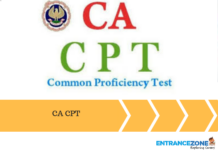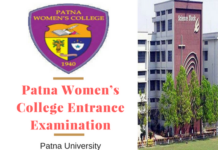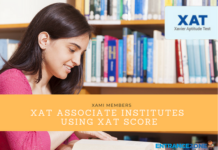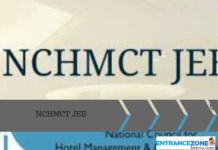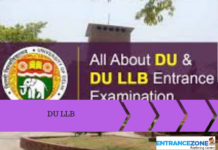TSWR Admission 2024 will be organized by Social Welfare Residential Educational Institutions Society, Government of Telangana to enroll the candidates in the Intermediate 1st year in General and Vocational Junior Colleges. The process of the TSWR application takes place in an online mode. The selection of the candidates takes place through an online mode. Thus candidates must check the eligibility criteria in order to fill the form. There is a provision of negative marking, so candidates must be very careful while answering the question. The TSWR admission process generally takes place online. Read the post to get a detailed view of the TSWR procedure.
Admission Open 2023
- Top University & Colleges Official Links, Application & Scholarship Forms.
TSWR Admission 2024 Status
Contains
- Admission open for:
- Class VI to IX in TSWR Residential Schools (Non-COE)
- Class XI in TSWR Residential Schools (COE)
- Degree Courses in TSWR Fine Arts School
- Last date to apply:
- Class VI to IX: March 15, 2024
- Class XI: March 31, 2024
- Degree Courses: April 15, 2024
- Selection process:
- Class VI to IX: Based on the student’s performance in the TSWREIS Entrance Test (RJC CET)
- Class XI: Based on the student’s performance in the TSWREIS COE CET
- Degree Courses: Based on the student’s performance in the TSWREIS FASET
- Documents required:
- Birth certificate of the student
- Aadhaar card of the student
- Proof of residence of the parents
- Transfer certificate (for students seeking admission from other schools)
The application form for the TSWR Admission 2024 can be downloaded from the official website of the TSWREIS. The application form must be filled and submitted online.
For more information, please visit the official website of the TSWREIS or contact the following helpline number: 040-23457890.
Subscribe to Get Updated Information about TSWR Admission 2024: Notification, Application, Selection Process - Admissions
Check the latest update regarding the Telangana Social Welfare Residential Educational Institutions Society (TSWREIS) admission process here:
| Particulars | Events |
| TSWR 2024 application form | February 2024 |
| TSWR 2024 Exam | March 2024 |
TSWR Admission 2024 Date
The knowledge of the TSWR date is important for those who are going to appear for the entrance exam. Candidates must be aware of the important dates so that they do not miss any important updates regarding the event. Check the table below
| Particulars | Events |
|---|---|
| Date of Notification | December 2023 |
| TSWR Application Form availability | February 2024 |
| Last date to fill the TSWR Application Form | March 2024 |
| Candidates can download the Admit Card from | March 2024 |
| Date of TSWR Entrance Test at level- I | March 2024 |
| Issue of 1st level qualified Candidates for 2nd level through website and SMS at the ratio of 1:3 | To be announced later |
| Date of Entrance Test at level-II | To be announced later |
| Announcement of results through the website of level | To be announced later |
| Date of intimation by the Principals of COEs concerned
(Call letters will be sent to the selected candidates). |
To be announced later |
| Date of reopening of the Colleges for the academic
The year 2024-23 |
To be announced later |
TSWR Admission 2024 Application Form
Class XI admission is taken care of by the government of Telangana that operates the selection process for the TSWR admission. The process of the TSWR application takes place in an online mode at the official site of TSWR. Candidates need to check their eligibility before applying for the TSWR. Only those who fulfill the eligibility criteria can apply. In order to fill the form, the candidates have to do the registration, form filling, scanned document uploading, and payment of the application fee. Look into the process here
Step 1: Online Registration
- Visit the official website of TSWR Admission i.e tsswreisjc.cgg.gov.in
- Click on the “ TSWR Admission 2024 Application Form”
- Enter the details required to do the registration such as the candidate’s name, parent’s name, gender, date of birth, etc.
- Enter the valid mobile no. and email id.
- Registration is done and a login id will be generated.
- Note down the ogin id and complete the process.
Step 2: Fill the Application Form
- Once the registration is done, login into the account and completes the application form by entering the details such as personal. educational, communication information in the form.
Step 3: Upload The Scanned Images
Photograph Specification
- Passport size Photograph with white background in JPG or JPEG format (size: 10 kb to 200 kb)
- Candidates must have original passport-size photographs as uploaded in the form. This is important for the verification.
Signature Specification
- Candidates must have the scanned image of the signature in the white background between 4 kb to 30 kb in JPG or JPEG format.
- Running handwriting
Step 4: Payment of the application fee
- Candidates have to make the payment of the application fee in an online mode through Debit/Credit Card/Net-banking/UPI
- Rs.100/- irrespective of Caste.
TSWR Admission 2024 Eligibility Criteria
For admission to Class XI
- Must have cleared SSC in one attempt in march 2021-22
- Apply and opt for institutions within his / her own district.
- Students who studied in Telugu Medium in 10th Class can also apply to English Medium Colleges.
- Students can also apply to other districts of the same Zone within the erstwhile District if the group of the same district is full.
- Have a copy of the mark sheet of SSC obtained through E-SEVA / MEE-SEVA is to be enclosed to the application.
- The parent’s income must not exceed Rs.2,00,000/- per annum, as certified by the MRO.
- The age of the students shall not exceed 17 years and in the case of students of SC/ST Community relaxation of 1 year will be given.
- The students should produce Caste and Income certificates Issued by the M.R.O /Tahsildar at the time of admissions.
TSWR Admission 2024 Syllabus
Syllabus for the 11th class entrance exam.
Mathematics
| Topics | Subtopics |
| Number system | Real numbers |
| Algebra |
|
| Coordinate Geometry | Lines [In two dimensions] |
| Geometry |
|
| Trigonometry |
|
| Mensuration |
|
| Statistics and Probability |
|
| Internal Assessment | – |
| Topics | Subtopics Topics |
| Personality Development |
|
| Wit and Humor |
|
| Human Relations |
|
| Film and Theatre |
|
| Topics | Sub Topics |
| Reflection of light at curved surface |
|
| Chemical Equations and Reactions |
|
| Acids, Bases and Salts |
|
| Refraction of light at curved surface |
|
| Human eye and colourful world |
|
| Structure of atom |
|
| Classification of Elements – The Periodic Table |
|
| chemical Bonding |
|
| electric Current |
|
| Electromagnetism |
|
| Principles of Metallurgy |
|
| carbon and its compounds |
|
| Topics | Sub Topics |
| Nutrition |
|
| Respiration |
|
| Transportation |
|
| Excretion |
|
| Control & coordination |
|
| Reproduction |
|
| Coordination in Life Processes |
|
| Heredity |
|
| Our Environment |
|
| Natural resources |
|
| Topics | Sub Topics |
| India: Relief
Features |
Geological background
• Major relief divisions, – The Himalayas, The Indo- Gangetic plain, The Peninsular Plateau, The Thar Desert, The Coastal plains, and the Islands. |
| Ideas on
Development |
• How to compare Different Countries or States • Income and other Criteria • Public Facilities • Human Development Report – India and its neighbours for 2015 data. • Development as progress over time |
| Production and Employment |
employment |
| Climate in Indian Context |
|
| Indian Rivers and Water Resources |
|
| The Population |
|
| Settlement and Migration |
|
| Settlement and Migration |
|
| Rampur : Village Economy |
|
| Globalisation |
|
| Food Security |
|
| Sustainable Development with Equity |
|
| National Liberation Movements in the colonies |
|
| The world between wars 1900-1950 |
|
| National Movement in India – Partition & Independence 1939-1947 |
|
| Making of Independent India’s Constitution |
|
| The Election Process in India |
|
| Independent India (The first 30 years 1947-1977) |
|
| Emerging Political Trends (1977-2007) |
|
| Post-War World and India |
|
| Social Movements in our times |
|
| The Movement for the formation of Telangana State |
|
TSWR Admission 2024 Exam Pattern
The knowledge of the exam pattern is very important for the candidates appearing for the entrance exam. Check the pattern here:
Class 11th Exam Pattern
- The exam duration is 3 hr min
- There will be MCQ types questions (Objective type)
- The exam is of 150 marks in total.
- There is the provision of the negative marking. 1/4th is a negative marking for the incorrect answer.
- The exam paper languages will be English and Telugu.
- There will be 4 sets of question papers. I.e SET-A, SET-B, SET-C, SET-D.
| Subjects | Total Question | Maximum Marks |
| Maths | 30 | 30 |
| Physical Science | 30 | 30 |
| Social Studies | 30 | 30 |
| Bio Science | 30 | 30 |
| English | 15 | 15 |
| General Knowledge and Current Affairs | 15 | 15 |
| Total | 150 | 150 |
TSWR Admission 2024 Admit Card
The concerned authority releases the TSWR Admission Admit Card in an online mode at the official site of the TSWR. The registered candidates have to login into the account and download the admit card and take the print of it. Candidates have to carry the TSWR admit card on the examination day. TSWR Admit Card contains a lot of information in it such as Candidate’s Name, Parent’s Name, Exam date, exam venue, exam timing etc.
Steps To Download The Admit Card
- Visit the official site of TSWR i.e tsswreisjc.cgg.gov.in
- A home page of the TSWR will appear on the screen
- Click on the admit card link
- Enter the details such as application no. and password.
- TSWR admit card will appear in the pdf form.
- Download the admit card and take the print of it for future reference.
Things To Keep In Mind Before Visiting The Centre
- Reach the examination hall before the closing of the centre gate.
- No further entrainment will be there once the date is closed.
- Check all the documents and things that are required to enter the examination hall.
- No entry in the examination hall without the admit card.
TSWR Admission 2024 Result
TSWR results will be released in an online mode at the official site. The Result is the final statement of the selected candidates that shows the qualifying nature in the exam. Candidates have to enter the application no., passwords, and security code in order to download the result.
Steps To Download The TSWR Result
- Visit the official site of TSWR i.e tsswreisjc.cgg.gov.in
- On a home page click on the result link
- Enter the required details such as application no. and password.
- Download the result and take the print of it for future reference.
TSWR School Reservation
| Category | Minimum Percentage |
| SC | 75% |
| SC Converted Christian | 2% |
| ST | 6% |
| BC | 12% |
| Minorities | 3% |
| EBC/ OC | 2% |
| Total | 100% |
Note:
- 3% of overall seats shall be reserved to the Physically Handicapped
- 3% of the overall seats are reserved for Orphans.
TSWR Admission 2024 Overview
| Admission Name | TSWR Admission |
| Conducting Body | Social Welfare Residential Educational Institutions Society, Government of Telangana |
| Exam Level | School Level |
| Languages of the paper | English and Telugu |
| Mode of Application | Online |
| Official Website | tsswreisjc.cgg.gov.in |
TSWR School Admission FAQs
Ques 1: For how many TSWR Schools I can apply to?
Ans: One
Ques 2: What is the frequency of the TSWR School Admission?
Ans: Once in a year.
Ques 3: What is the mode of the TSWR School Admission application form?
Ans: Online
Ques 4: What is the mode of the TSWR application fee payment?
Ans: Online
Ques 5: Is there a negative marking in TWSR?
Ans: Yes. 1/4th marking for the wrong answer
Ques 6: What is the exam paper mode of TSWR?
Ans: English and Telugu



